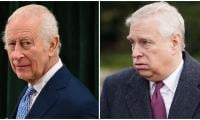Super tax
The super tax that has caught the business sector off-guard is a tough decision in the right direction as it will to some extent bridge the budget deficit. The reaction to the tax, however, has expectedly been explosive. The first casualty was the capital market that came down crashing on event-sensitive investors, losing over 2,000 points on Friday. But the step has taken Pakistan closer to a much needed bailout deal with the IMF. And the danger of a default has been effectively averted. The extra one-time 10 per cent tax is likely to fetch the government about Rs400 billion, enough to shake hands with the IMF on a loan deal. The government clamped a bunch of new taxes on various areas of the economy after feeding from the hand of the IMF. These taxes are being enforced by the IMF through a government that is desperate to do anything to get a stuck loan going. Critically low foreign reserves, a free falling rupee, and towering inflation, are all circumstances that are begging for a bailout that only the IMF can offer.
The boldest of all of these taxes is this additional one-time ‘super tax’ on big manufacturers, which they are not going to stomach – no matter what happens. Wary of the backlash, an apologetic Prime Minister Shehbaz Sharif had to break the news himself on national television. The naysayers say the super levy is going to be a thorn in the side of the business sector and will not be as big a help as the government believes it will be in bringing its budget deficit within limits. It will also send a message to world investors that investing in Pakistan may not be a good idea. The super tax will target 13 big industries, companies and corporations – including sugar, steel, cement, oil & gas, fertiliser, cigarettes, chemical, automobiles, banks, textile, LNG terminals and beverages – which have earnings exceeding Rs300 million. As a result, their tax rates will go from 29 per cent to 39 per cent. However, there will be a blanket four per cent super tax on all industries.
Taxpayers have been asked to bear with the government for just one year as the country desperately needs their contribution to remain economically afloat. Analysts say this will dent the earnings of big businesses by 14 per cent in 2022. Moreover, effective tax rates for banks would increase to 43 per cent in Tax Year 2022, from the effective tax rate of 39 per cent previously. For banks, tax on government securities (with ADR of less than 50 per cent) will be at rates as proposed in the finance bill. The pickings from the levy will be paltry. Industry estimates show this measure could result in additional tax collection of Rs250 billion to Rs300 billion for the government, but may not be enough to meet the IMF-set revenue and deficit targets completely. Meeting the higher target also depends on a smooth local and international political situation. So, for now keeping fingers crossed would be good advice. A one-time super tax on corporations is good but then why do the incomes of large agricultural landlords and those that are powerful remain sacred cows when it comes to taxation – while industry, business, and the salaried class become the whipping boys? When will the government twist retailers’ arms to make them pass the taxes they charge consumers on to the national kitty? These are some valid questions – and they will continue to be raised.
-
 The Pope Breaks His Silence On Iran Attacks: Breaking
The Pope Breaks His Silence On Iran Attacks: Breaking -
 US On High Alert After Overnight Joint-military Strikes On Iran: FBI
US On High Alert After Overnight Joint-military Strikes On Iran: FBI -
 Prince William 'frustrated' By Delay In Major Move Against Andrew
Prince William 'frustrated' By Delay In Major Move Against Andrew -
 BLACKPINK's Rose Makes K-pop's History With Major Win
BLACKPINK's Rose Makes K-pop's History With Major Win -
 Noel Gallagher Gives Shut-up Call To Critics After Receiving BRIT Award
Noel Gallagher Gives Shut-up Call To Critics After Receiving BRIT Award -
 Pentagon Used Anthropic’s Claude AI In Iran Attack Despite Ban: Report
Pentagon Used Anthropic’s Claude AI In Iran Attack Despite Ban: Report -
 Nvidia Teams Up With Telecom Firms For AI Driven 6G
Nvidia Teams Up With Telecom Firms For AI Driven 6G -
 SpaceX Launches 25 Starlink Satellites On Its Falcon 9 Booster From The West Coast
SpaceX Launches 25 Starlink Satellites On Its Falcon 9 Booster From The West Coast -
 Expert Reveals What Makes Investigations Hard In Search Of Savannah Guthrie Mother Nancy: 'Silent Witness'
Expert Reveals What Makes Investigations Hard In Search Of Savannah Guthrie Mother Nancy: 'Silent Witness' -
 'SNL's Strongly Reacts To BAFTA's Racial Slur With Tourette’s Sketch
'SNL's Strongly Reacts To BAFTA's Racial Slur With Tourette’s Sketch -
 Austin Shooting Leaves Multiple Dead, Dozens Injured
Austin Shooting Leaves Multiple Dead, Dozens Injured -
 Meghan Markle Friends Break Silence As Duchess Plan To Return To UK
Meghan Markle Friends Break Silence As Duchess Plan To Return To UK -
 Dua Lipa Stuns Everyone On And Off Stage At 2026 BRIT Awards
Dua Lipa Stuns Everyone On And Off Stage At 2026 BRIT Awards -
 2026’s Most Visited Websites Revealed: ChatGPT Overtakes Major Platforms
2026’s Most Visited Websites Revealed: ChatGPT Overtakes Major Platforms -
 Worst Cricket Moments That Shocked The Game
Worst Cricket Moments That Shocked The Game -
 Prince Harry, Meghan Markle Reach A Crossroads: ‘You Could Lose Everything’
Prince Harry, Meghan Markle Reach A Crossroads: ‘You Could Lose Everything’



